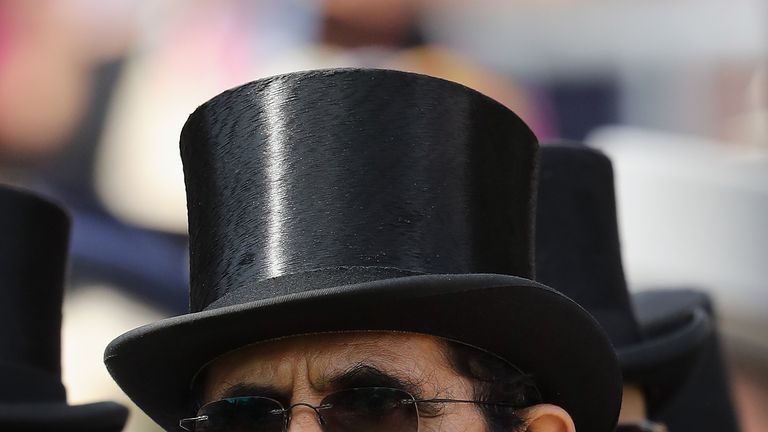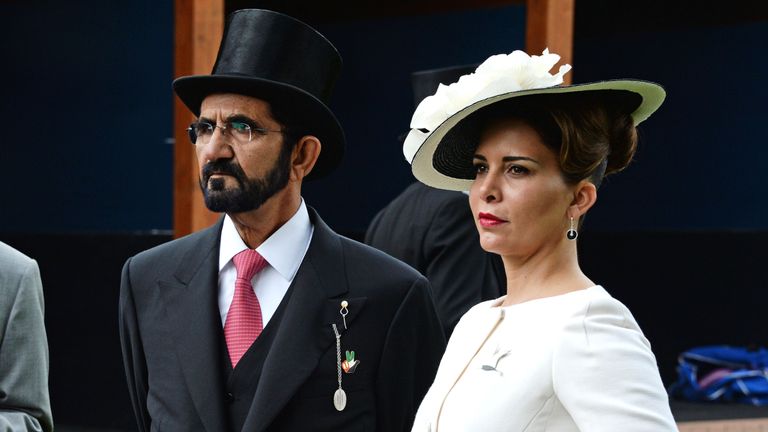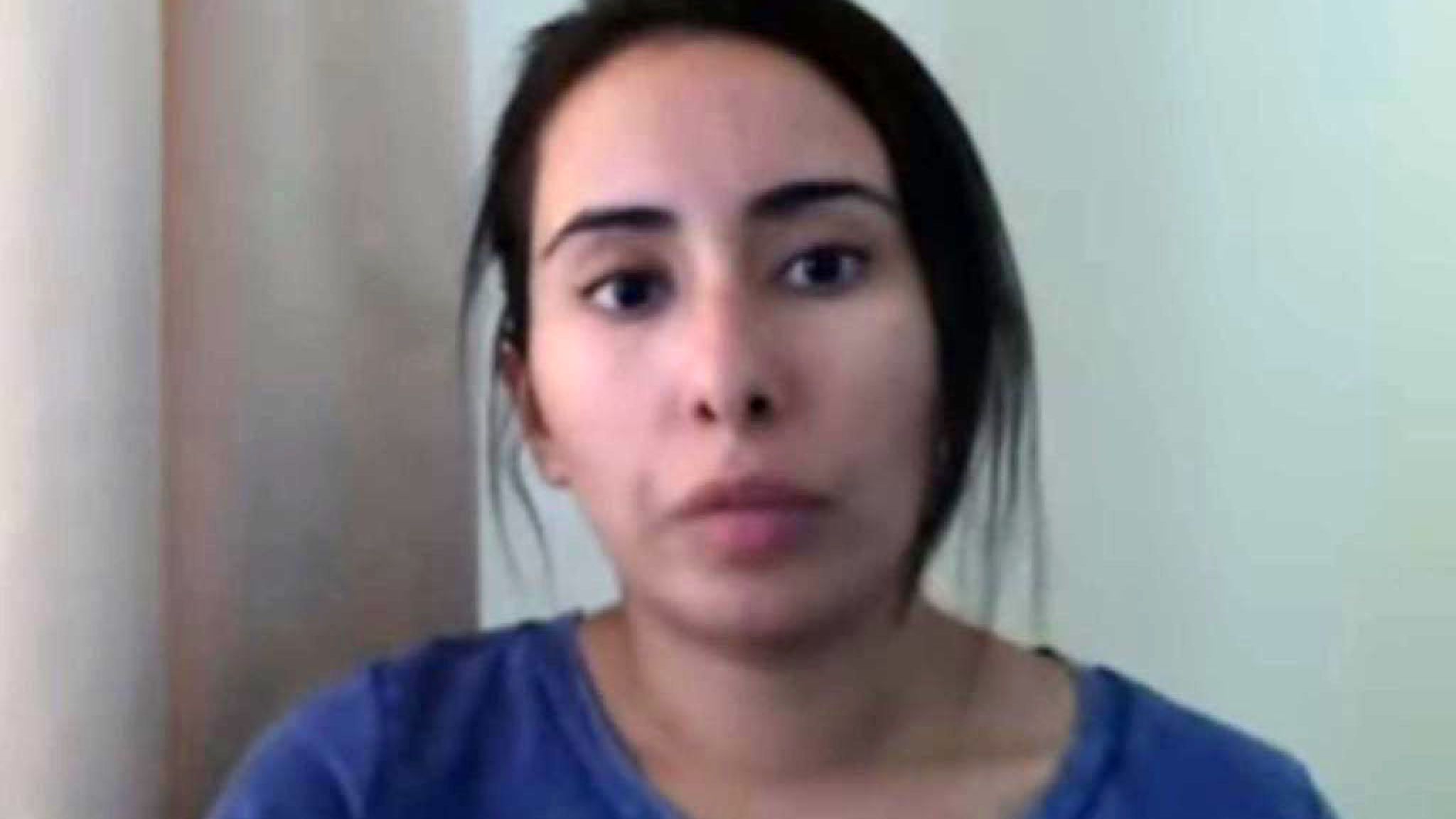The revelations emerge following a press battle over a dispute between Dubai’s ruler and his wife Princess Haya bint al Hussein.
Sanya Burgess
March 5, 2020, Sky News
A British judge has found that the ruler of Dubai is responsible for the kidnapping and detention of two of his daughters, including Princess Latifa.
The explosive revelations have emerged following a press battle to reveal the high court judgments made in the dispute between Sheikh Mohammed bin Rashid al Maktoum and his wife Princess Haya bint al Hussein.

The judgments also stated the Sheikh conducted a campaign of harassment and intimidation of his former wife Princess Haya, including:
- On two occasions a gun was left on her bed with the muzzle pointed towards the door and the safety catch off.
- Anonymous notes were left around Haya’s bedroom and elsewhere that she found intimidating, including one note “your life is over” and threatening that they would “take” her children.
- A helicopter landed outside Haya’s house. The pilot said he was there to take a passenger to prison. The Sheikh has accepted a helicopter landed but says it was a mistake.
The judgments were made by the president of the family division of the high court, which is a civil rather than criminal court.
The findings were established by Sir Andrew McFarlane to determine the welfare issues surrounding the couple’s children, who are currently wards of the court.
Princess Haya had asked Sir Andrew to make findings of fact about Sheikh Mohammed in relation to his application for contact with their daughter Al Jalila, 12, and son Zayed, eight.
In an unusually frank summary, Sir Andrew summarises this stranger-than-fiction case, saying: “In a number of respects, the context within which this fact-finding determination takes place is extraordinary and well outside the ordinary ambit of family proceedings.
“The allegations that the father ordered and orchestrated the kidnap and rendition to Dubai of his daughters Shamsa and Latifa are of a very high order of seriousness.
“They may well involve findings, albeit on the civil standard, of behaviour which is contrary to the criminal law of England and Wales, international law, international maritime law, and internationally accepted human rights norms.”
Princess Haya, a former Olympian, left Dubai last year and has been living in London with their two children since May. The pair married in 2004.

The judgment explains the pair had “apparently not enjoyed an intimate relationship with each other for a significant period of time” but “their relationship remained cordial and, seemingly, mutually supportive.”
It goes on to reveal that around three years ago, Princess Haya began a relationship with one of her male bodyguards, which the Sheikh became aware of.
Sir Andrew has accepted that following this adultery coming to light, the Sheikh took actions to intimidate Princess Haya, including stripping her of her official status in the Ruler’s Court and publishing a series of poems on social media which could be read as threatening to her.
Under Sharia Law it is possible to divorce your wife without them knowing. The Sheikh divorced Princess Haya without her knowing on 7 February 2019, 20 years to the day that her father – the late King of Jordan – had died. She only discovered she had been divorced months later.

Princess Haya had asked Sir Andrew to make findings of fact about Sheikh Mohammed in relation to his application for contact with their daughter Al Jalila, 12, and son Zayed, eight.
In an unusually frank summary, Sir Andrew summarises this stranger-than-fiction case, saying: “In a number of respects, the context within which this fact-finding determination takes place is extraordinary and well outside the ordinary ambit of family proceedings.
“The allegations that the father ordered and orchestrated the kidnap and rendition to Dubai of his daughters Shamsa and Latifa are of a very high order of seriousness.
“They may well involve findings, albeit on the civil standard, of behaviour which is contrary to the criminal law of England and Wales, international law, international maritime law, and internationally accepted human rights norms.”
Princess Haya, a former Olympian, left Dubai last year and has been living in London with their two children since May. The pair married in 2004.

The judgment explains the pair had “apparently not enjoyed an intimate relationship with each other for a significant period of time” but “their relationship remained cordial and, seemingly, mutually supportive.”
It goes on to reveal that around three years ago, Princess Haya began a relationship with one of her male bodyguards, which the Sheikh became aware of.
Sir Andrew has accepted that following this adultery coming to light, the Sheikh took actions to intimidate Princess Haya, including stripping her of her official status in the Ruler’s Court and publishing a series of poems on social media which could be read as threatening to her.
Under Sharia Law it is possible to divorce your wife without them knowing. The Sheikh divorced Princess Haya without her knowing on 7 February 2019, 20 years to the day that her father – the late King of Jordan – had died. She only discovered she had been divorced months later.

The judge upheld these allegations on a balance of probability and said: “I find that the cumulative effect of each of these episodes was to place the mother in a position of great fear leading her to conclude that she had no option but to leave Dubai with the children as she did.”
Not every allegation put forward by Princess Haya were accepted by Sir Andrew.
At the beginning of the legal process, the mother-of-two had applied for a forced marriage protection order. Princess Haya, in her legal testimony given to the judge, claimed she had reason to believe that a marriage was being plotted between her daughter, then aged 11, and Mohammed bin Salman, the Crown Prince of Saudi Arabia, who is in his thirties.
There is no evidence that Mohammed bin Salman, who has previously attracted negative headlines in the UK following the murder of journalist Jamal Khashoggi, was aware of this or has done any wrong doing regarding this matter.
Explaining his reason for not accepting this extraordinary claim, the judge writes in his judgement: “Although the mother undoubtedly considers this to be a trustworthy source and believes the allegation, in terms of establishing proof on the balance of probability… [this] falls well short of the required standard. I do not, in the circumstances, find this allegation proved.”
The 70-year-old billionaire prime minister of the UAE, who is understood to be on friendly terms with the Queen of England thanks to their joint love of horse racing, did not attend any of the London court sessions, while Princess Haya, of Jordan, 45, was present at each hearing flanked by her star lawyer Fiona Shackleton, who previously handled the divorces of Prince Charles and Princess Diana as well as Paul McCartney and Heather Mills.

The judge made considerations for the couple’s children by assessing allegations made by Princess Haya and at least two witnesses around the fate of two of the Sheikh’s adult children – Sheikha Latifa bint Mohammed Al Maktoum and Sheikha Shamsa bint Mohammed bin Rashid Al Maktoum.
Both princesses share the same mother, who is not Princess Haya.
The fate of princess Latifa has been closely followed by the media after she disappeared from public view two years ago when she attempted to flee her family in Dubai.
Before her botched escape, Latifa recorded a video which was subsequently released in which she made a number of allegations of abuse at the hands of her father.
The 34-year-old has not been seen in public since 4 March 2018. Photos of her with former human rights chief Mary Robinson were released by the Dubai royal family on Christmas Eve later that year.

Princess Latifa’s case sounds straight from a Hollywood film, but has been accepted by Human Rights Watch and Amnesty International, while the UN group on enforced disappearances has continued to hear evidence on her case.
Her story has now also been accepted as true by Sir Andrews’ ruling.
She attempted to escape with the help of a French former spy Herve Jaubert, who it is alleged was expecting to receive a large sum of money for his involvement. She also fled with long-time friend and martial arts coach Tiina Jauhiainen.
After fleeing through neighbouring Oman, Latifa made it onboard Mr Jaubert’s boat, The Nostromo, and set sail for the Indian coast.

The yacht was intercepted and those on board say they were beaten by men who boarded the ship and then detained in the UAE.
Princess Latifa was taken onto a helicopter and not seen again in public.
The Sheikh says taking Princess Latifa back to Dubai was a rescue mission, and that he feared she had been misled by others.
In Princess Haya’s submissions to the court, she claims to have met with Princess Latifa a number of times since the alleged kidnapping.
She describes the meeting in the documents, saying: “[I] knocked on Latifa’s bedroom door. She opened the door, looked at me, embraced me, and burst into tears.
“She cried for a long time. She looked vulnerable. She had no makeup on and she had pale skin. She had a track suit and a hoodie on, her body language was closed and her sleeves were pulled down over her hands.
“She looked like she was deliberately making no effort with herself. She did not look unwell but she certainly did not look happy or content.”
Her sister, Princess Shamsa, was abducted off the streets of Cambridge in 2000 and forcibly returned to Dubai.
According to a statement in the judgment, the Sheikh says he was worried about Princess Shamsa’s welfare and that when she was brought back to Dubai he had an “overwhelming relief that she was safe and had not come to any harm.”
A statement issued on behalf of the Sheikh regarding the court judgments said: “This case concerns highly personal and private matters relating to our children.
“The Appeal was made to protect the best interests and welfare of the children. The outcome does not protect my children from media attention in the way that other children in family proceedings in the UK are protected.

“As a Head of Government, I was not able to participate in the Court’s fact-finding process, this has resulted in the release of a “fast-finding” judgment which inevitably tells only one side of the story.
“I ask that the media respect the privacy of our children and do not intrude into their lives in the UK.”
